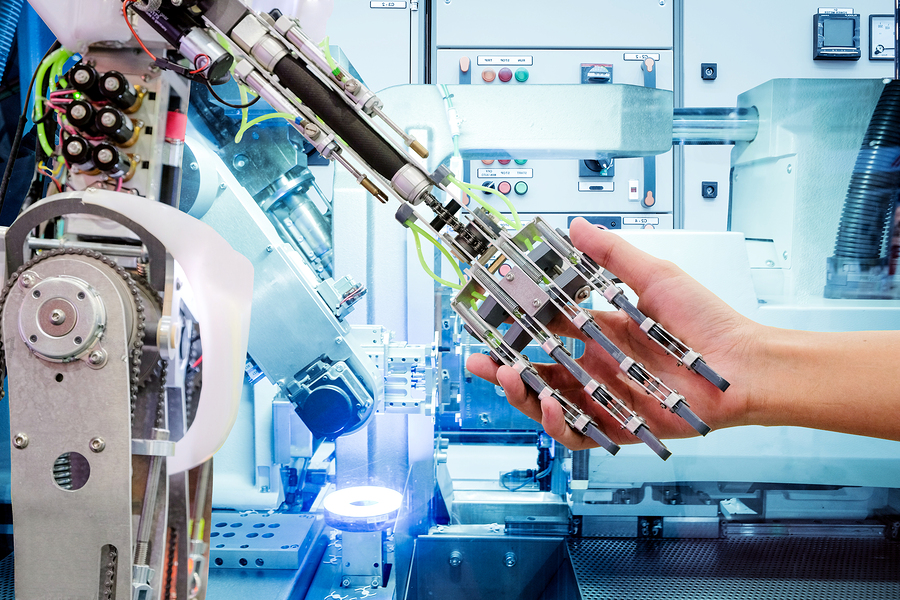Thanks to new technologies, the world is constantly changing, becoming increasingly interconnected and advanced, and as a result, both new and existing sectors must keep up with the latest demands.
Here are 8 technologies that are really booming and worth keeping your eye on:
- Artificial Intelligence
With its main pioneers located in Hong Kong, Singapore, and China, artificial intelligence is an industry that experiences continuous and rapid growth. Actually, by 2025, this competitive market will be worth close to $9 billion. It’s no secret that AI tech has made leaps and bounds in the last few years and the point where it can actually deliver has been reached.
The new and improved technology created and developed by this sector includes artificial intelligence that is able to smell certain diseases, to predict, with a 95% accuracy, when someone’s going to pass away, as well as Amazon Alexa-type of virtual assistants.
- Outsourcing
Business process outsourcing is vigorously on the rise with freelance marketplaces like Giggrabbers, Fiverr, and Upwork that are created to help you hire freelancers, be productive, and focus on development.
The internet made collaboration between teams and individuals located in different cities, countries and continents possible. Moreover, there’s an increasing number of professionals who don’t really fancy the classic 9-to-5 job and look for opportunities to work from home or while travelling. Not to mention that companies choose outsourcing for a plethora of reasons, including lowering costs, reducing the need to train in-house staff, reducing the enterprise’s investments in capital expenditures, and, overall, enhancing the utilization of an organization’s resources.
Hence, it shouldn’t come as a surprise that this market is experiencing a steady growth – in 2018, the global outsourcing industry amounted to the impressive number of 85.6 billion U.S. dollars and by 2025, it’s expected to reach 343.2 billion U.S. dollars.
- Virtual reality
Despite that it was introduced into the market in the early 1990s, virtual reality equipment has only been available to mainstream consumers since 2015. From there, the industry rapidly went from strength to strength, recently seeing a massive increase in popularity. For instance, VR headsets are right now items that gamers, along with other tech enthusiasts have on their wish-lists. However, VR is not only used for entertainment purposes: it’s also used in sports, as a training aid, in the military, in education, in several museums across the world (such as the Helsinki City Museum in Helsinki, Finland) and in mental health to help patients deal with severe phobias and past traumas. The size of this industry has doubled each year and is expected to explode to $75 billion by the end of 2021.
- Renewable energy
Since the price of green energy like wind and solar power has declined in recent years, renewable energy has become more affordable and starts being seen as a more feasible option for many companies and countries. While this doesn’t mean that green energy is ready to eclipse fossil fuels yet, the big day might come sooner than we expect. The industry has been steadily gaining steam in the US, Europe, and China, becoming an increasingly mainstream part of many people’s lives, mainly through rooftop solar panels and electric cars.
The EU has raised its target of having 32% of its total energy use being renewable power by 2030. Moreover, Samsung has committed to using only green energy by 2020 in Europe, the US, and China. Not to mention that this industry produces a massive number of jobs – 11 million people already work in this sector.
- Cybersecurity
As businesses and people turn to the online to handle their finances and data, the risk of cyber theft increases. Unfortunately, in 2017, there are 4.7 million cybercrime cases in the United Kingdom alone. This makes cybersecurity crucial, thus the industry is experiencing continuous demand. Experts predict that the global cybersecurity market will be worth $165.2 billion by 2023.
Cybersecurity experts use encryption, databases, firewalls, networks, and hardware in order to avoid and stop online money and information theft, block intruders and ensure that cyber systems run correctly and smoothly.
- Drones
These flying robots actually started out as military technology, and they’re still mainly used for security and military applications. Nevertheless, as drones become more affordable and advanced, other industries are starting to hop on this bandwagon. Potential applications these smart gadgets can be used in include agriculture, real estate, firefighting, cinematography, and construction. They can help remotely view areas affected by fires and floods, deliver packages, and effectively inspect crops. Plus, as their price lowers, an increasing number of people purchase them as toys.
- Biotechnology
In the 1970s. biotechnology successfully sprang up the intersection of tech and biology. Nowadays, the industry can solve a broad variety of lofty problems in agriculture, medicine, etc. In addition, as technology improves, the sector’s potential simply keeps growing. For example, biotech is used to generate higher crop yields – this is key, as the world population is rapidly increasing. Moreover, it can cure genetic diseases by manipulating genes, which helps improve the quality of many people’s lives.
- Micromobility
Micromobility is an industry that rapidly attracts customers and cash. Actually, this market managed to build a strong customer base two to three times faster than ride-hailing and car-sharing.
This accelerated expansion was driven by two major factors. The first one is that the majority of shared micromobility launches take place in conducive environments: urban consumers already love and use shared mobility solutions, which appear to make them happy. They oftentimes arrive faster to the destination than if they were to take public transport or be blocked tens of minutes in traffic. In addition, they enjoy the fresh air while traveling. Basically, micromobility solutions make them feel free and joyful, just like they were the first time when they rode a bike or a scooter. Secondly, it’s easier for companies to scale up micromobility assets than car-based sharing solutions.


